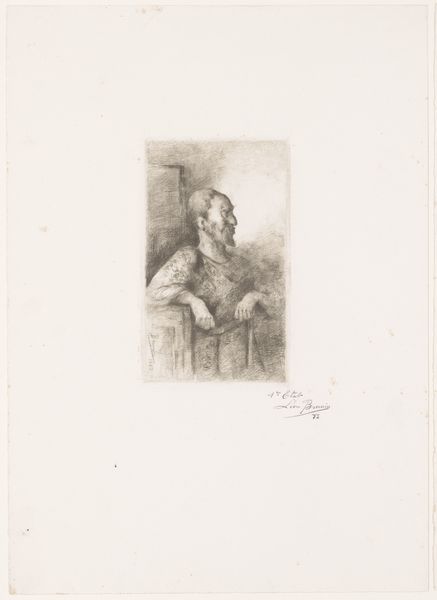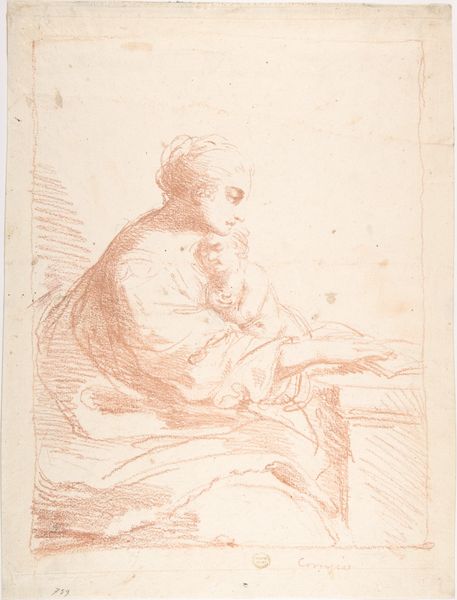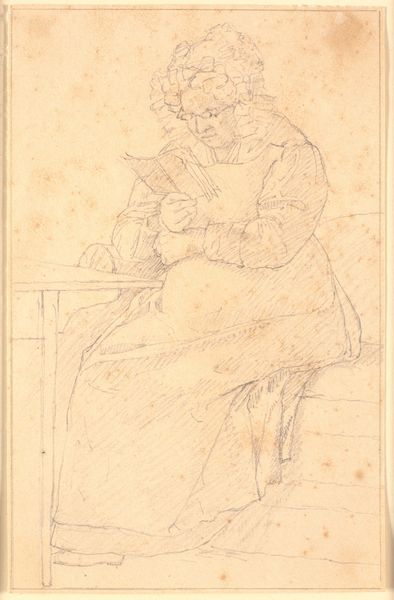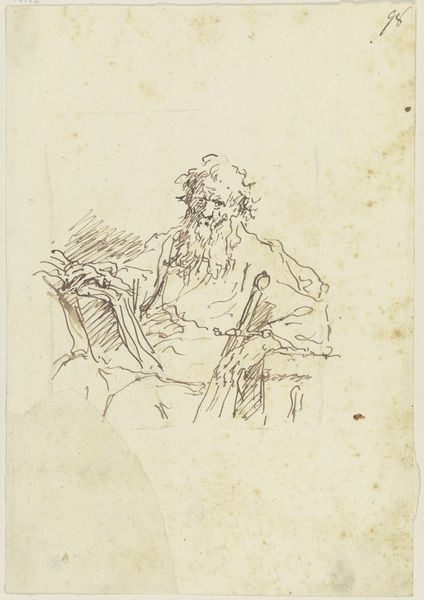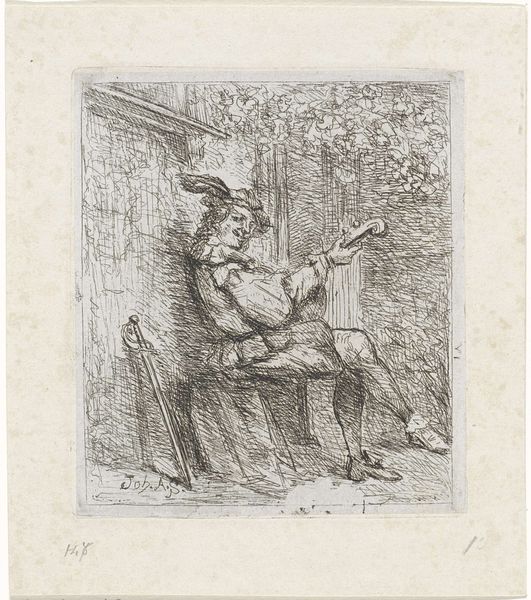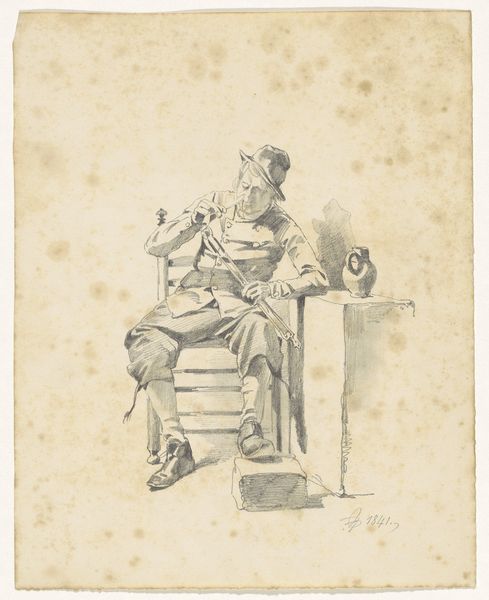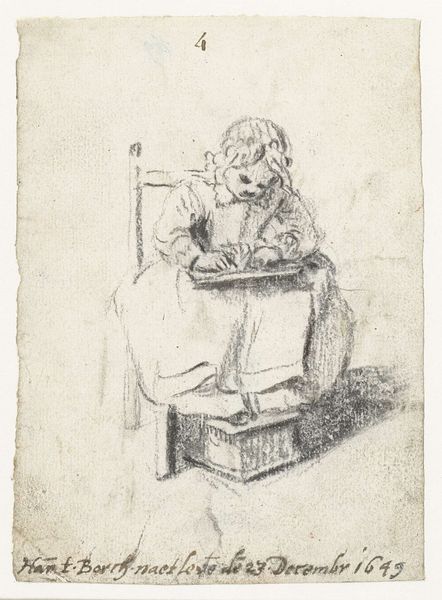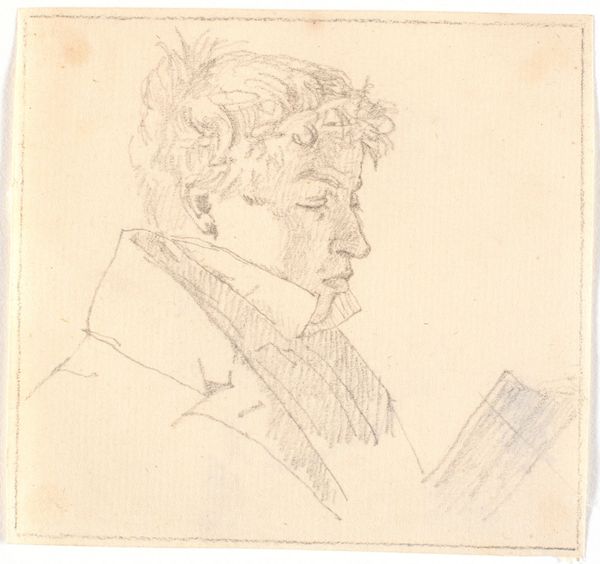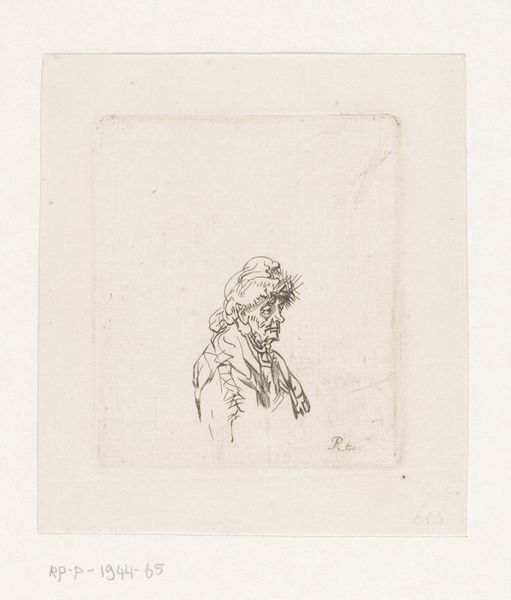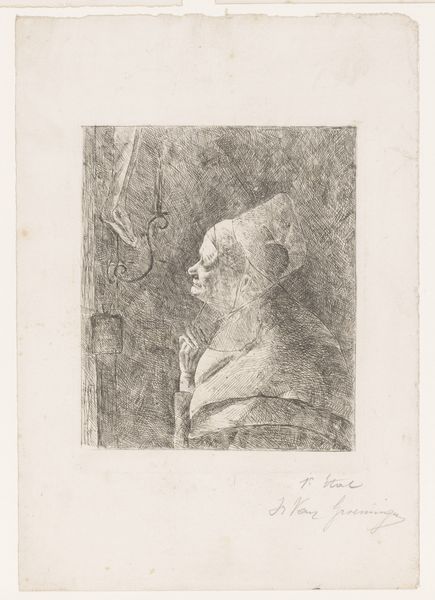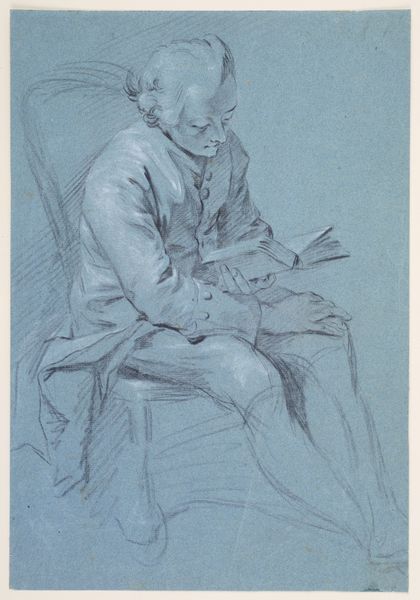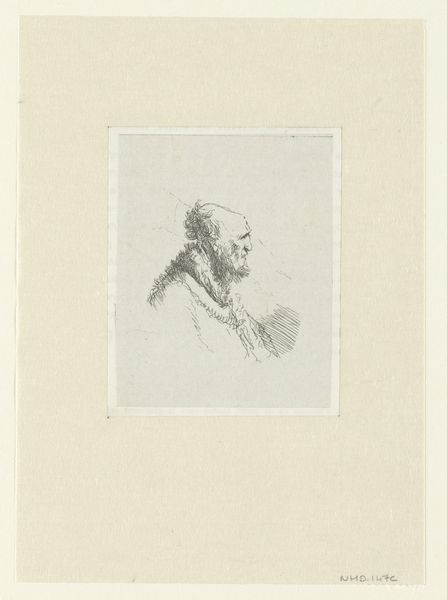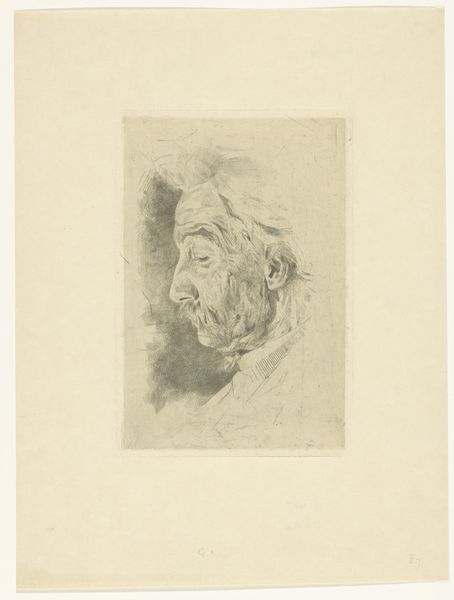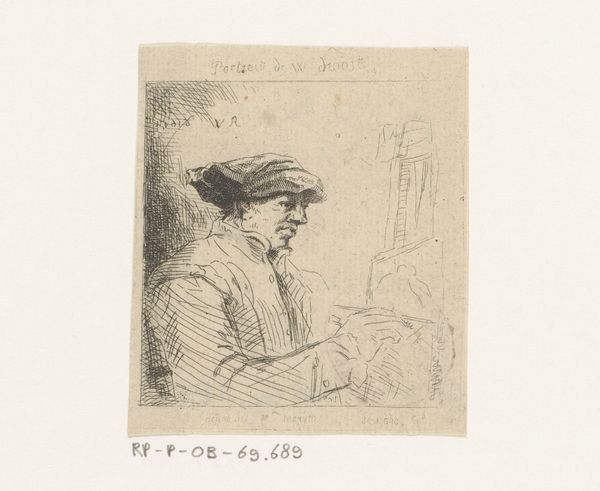
drawing, pen
#
portrait
#
drawing
#
pencil sketch
#
romanticism
#
pen
#
realism
Dimensions: height 160 mm, width 200 mm
Copyright: Rijks Museum: Open Domain
Honoré Daumier made this pen and brush drawing, ‘Lezende man,’ or ‘Reading Man,’ using gray ink and watercolor. The lone figure absorbed in his book reflects a broader shift in 19th-century France toward valuing individual experience. Daumier, working in a period marked by political upheaval and burgeoning industrialization, often focused on the everyday lives of the bourgeois class. The act of reading here becomes a symbol, perhaps, of private contemplation amidst societal changes. The institutional history of art at the time also played a role. The rise of public museums and art criticism influenced both artistic production and reception. Daumier's work, with its subtle social commentary, thrived in this environment, challenging traditional academic art. Understanding Daumier's art requires examining the socio-political context of 19th-century France. Accessing period newspapers, political pamphlets, and exhibition reviews can provide insights into the cultural landscape that shaped his artistic vision. The meaning of art is contingent on its social and institutional context.
Comments
No comments
Be the first to comment and join the conversation on the ultimate creative platform.
